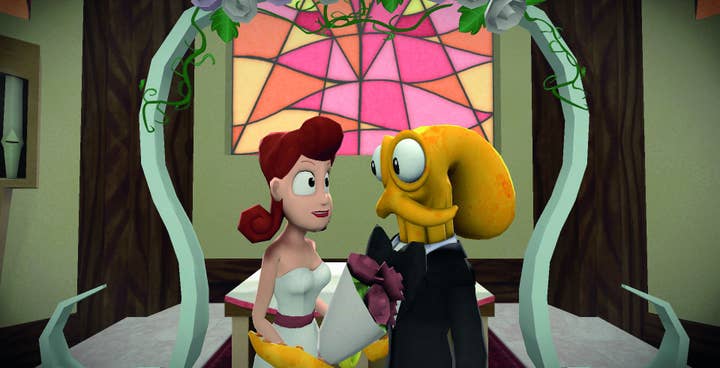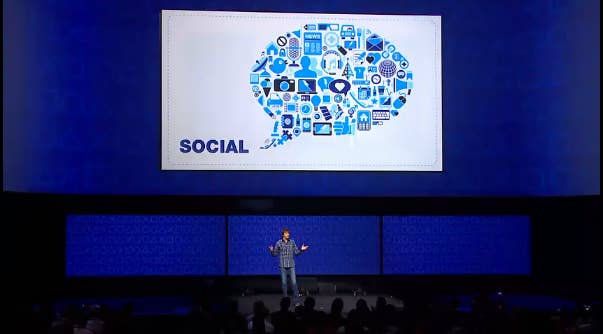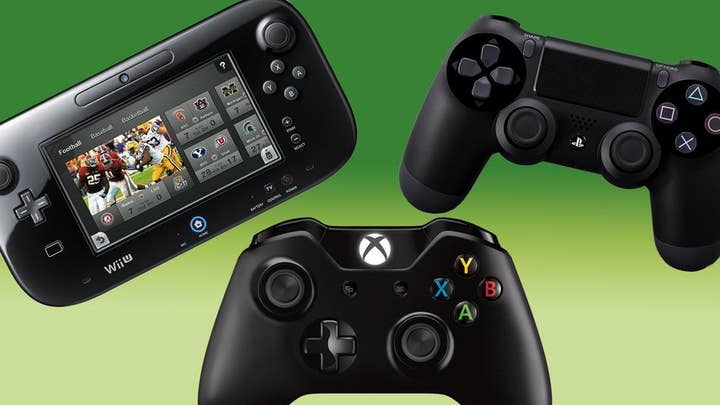Roundtable: What Will Be This Generation's Biggest Disruption?
With new consoles on the market, the GamesIndustry International staff looks at what could define this generation in the years ahead
With both the Xbox One and the PlayStation 4 now on the market, we can officially say that the next generation has arrived. But for some odd reason, it still doesn't quite feel like it. Sure, both camps have sold a million systems apiece, but perhaps it's because the graphical leap just isn't what it used to be, or maybe it's because we've yet to witness anything truly jaw dropping on either new console, or that there are so many good games still being published for the last-gen machines. Or maybe it's that we're being distracted by other technologies in the form of mobile, tablets, VR and micro consoles.
While the last generation yielded all sorts of innovation and market disruption - motion controls, guitar playing, second screen interactions, fitness titles, digital distribution, DLC, achievements, etc. - it's not yet clear what this new generation will bring that's bold, different and disruptive. As Nick Button-Brown, general manager at Crytek told us recently, "We talk to publishers a lot, and one of the most painful questions is, 'Tell me what next gen gameplay is gonna be?' It's not something you can define."
Indeed, we'd be lying to our audience if we said we knew what will really disrupt the current generation of gaming, but in this roundtable the GamesIndustry International staff does its best to predict the future.
Brendan Sinclair
It's strange, but I think the biggest advances facilitated by this new hardware have nothing to do with the hardware itself. It's just that a new generation of systems is an ideal time for companies to reassess their policies, to shake up their strategy, to upend the table. The disruption I expect to see will be made possible only by the chaos of the generational transition, and the opportunity it affords for some non-traditional thinking to find purchase in a market desperate for new ideas.
This prediction might be based on my hopes more than any rational argument, but the biggest change I see coming this generation is in the way the public perceives the core gaming market. As much as Wii Sports, Guitar Hero, Brain Age, and Bejeweled extended the medium's reach beyond the young male crowd, they haven't really moved the needle on what people think of gamers. They were enjoyed as novelties or trifles, pursuits that weren't considered games because they were so different from everything people had come to expect from games. There were no controllers, just plastic proxies and touch screens. They were different from the perception of games in both form and function, so the masses' opinion of them was irrelevant to their opinion of games.

I believe this generation will showcase games in their traditional form--on the couch, controller in hand--but with a vastly expanded function. Instead of being used to tell stories of violence and war, they will be used to tell heart-wrenching stories of children with terminal cancer, of empathy for adolescent agonies, of undercover cephalopods posing as human fathers. Because these stories will be told through a form people still recognize as games, because the console makers new and old are pushing to host these games on their systems, they will receive the attention they deserve, and in so doing they will change the way people think about games.
Steve Peterson
The improved graphics of next-gen consoles are nice, but not a disruptive innovation on the order of the shift from 2D to 3D. The real disruption with next-gen consoles will come from things like changing business models, massively multiplayer gaming, design innovation, cloud computing, social gaming and second-screen integration. We're already seeing hints of these things, as free-to-play and virtual goods are becoming increasingly part of console games.
More and more content will be sold digitally, and this will lead to rethinking game designs to both reduce development costs and increase engagement. The increased social integration of next-gen consoles, with built-in streaming, easy match-making, and the way you can more easily game with friends are going to have a big impact.
"Companies need to be more cognizant about how they present their titles... Any misstep in presentation is shared with thousands instantly"
Mike Williams
Designers have just begun to realize the possibilities of cloud computing in games, using massive network resources to handle AI problems and make games more fun. Machine Zone's real-time translation in their mobile title Game of War: Fire Age lets gamers connect across language barriers - we should see this on consoles, too. Games like Bungie's Destiny point the way towards massively multiplayer console gaming that works seamlessly and lets you engage to the degree you want - that promises to be truly disruptive if it works well. Ubisoft's The Division shows a fascinating way to bring a tablet into console gaming, where everyone will want a tablet user on their squad. Many games are integrating mobile platforms into the console experience in a variety of ways, and this holds the potential of making console games even more engaging and varied.
The challenge for Sony and Microsoft is to keep pushing on system-level improvements to enable these sorts of innovative designs, and to continue to reduce their bureaucracy and barriers to get more games on their platforms. Next-gen consoles need to take advantage of all the things the modern connected world has to offer and integrate that into a gaming-centric environment where there are no barriers to fun. Next-gen consoles have the potential to take the best of other platforms and connect it to gamers - let's hope they make that happen.
Mike Williams
Will new systems bring new paradigms? I'm not quite sure yet, because everything I've seen is an extension of things we already have. If anything, I think companies will use the console transition as a chance to see if consumers will try some old business models and ideas in a new configuration.
The Xbox One lineup is just one example of what I'm talking about. Microsoft Studios' entire slate is either free-to-play or a full $60 game rife with microtransactions. Killer Instinct is on the former path, while Ryse, Forza Motorsport 5, and Dead Rising 3 are on the latter side. Killer Instinct seems to be well received, but Forza's already suffering some backlash for its car prices. It's fine if Microsoft wants to try out these models, but it remains to be seen if consumers will warm to the idea at all. Microsoft is just hoping that consumers assume this is part-and-parcel of a new system and shrug their shoulders.

One major game changer will be the ability to effortlessly share gameplay and screenshots via Twitter, Facebook, Twitch, and SkyDrive. Not only does it change how fans are interacting with each other, but I can see it changing how fans interact with developers and publishers. These systems are always recording, so any bug is saved on a video or screenshot and sent out to the world. Companies need to be more cognizant about how they present their titles. One fan receives NBA Live 14 a bit early and the resulting Twitch stream might be responsible for lost sales. Any misstep in presentation is shared with thousands instantly. Sure, these were tools that were always available to PC players, but now they're available to a much wider audience.
"That's the next disruptor... gamers that expect to be listened to and to play an active part in the industry they love, and companies that will figure out that it's worth their time to do so"
Rachel Weber
Rachel Weber
The biggest disruption that will face this generation? Unless evolution decides to suddenly change the shape of human hands it won't be another controller, and anything on the business side of things will just be a further blending of the pay upfront/free-to-play model. The biggest disruptor will be the gamers.
Think about it, in this generation, more than any others, console manufacturers and publishers are painfully aware of what the gamers are demanding, and they're demanding it so loudly that you can't help but listen. They're on YouTube, Twitter, Facebook, Twitch, they're emailing and messaging, they're letting you know when you've done wrong and holding on to their cash until you do right. Or at least threatening too, which in these recession hit times is just as powerful if your investors get wind of it.
Sounds crazy? Look at what happened between that initial Xbox One launch and the product you've got underneath your television right now. All the backtracking came about because gamers shouted about. As games journalists we like to think we make an impact with our editorials and our cutting roundtable discussion, but it's the customer that's always right. It's happening in smaller ways too. Kickstarter has made development a collaborative process for a lot of developers, with backers offering real help and feedback from the moment the first piece of concept art hits the internet. Indie developers are tailoring their work for their fanbase in a way they couldn't before, because they can talk to them everyday.
And think that you're not a disruption because you only tweet about pigs in wellington boots and use Facebook for pictures of your baking? Your data is still talking to big companies. How long you spent on that Candy Crush level, how long you looked at that horse armour DLC before deciding not to buy, or your entire PSN download history, your Netflix stats - they know you've watched The Real Housewives Of Beverly Hills more than is healthy.
So that's the next disruptor, the big change that will shape this generation more than a new processor or headset - gamers that expect to be listened to and to play an active part in the industry they love, and companies that will figure out that it's worth their time to do so. Don't agree? Tweet it.









